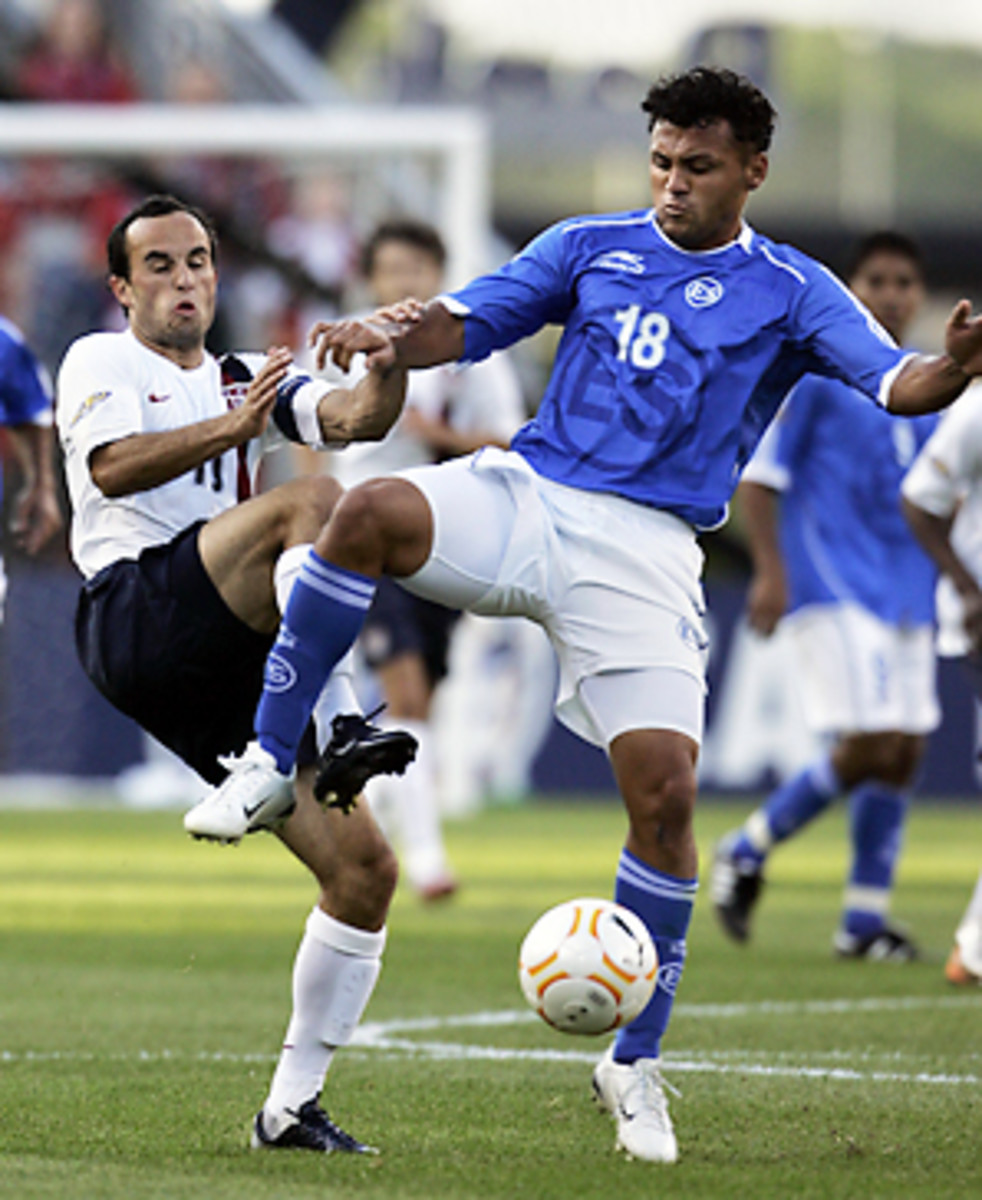El Salvador's '10 World Cup march marked by unsavory accusations
Mexican coach Carlos de los Cobos has worked hard in difficult circumstances to make the team competitive since taking over in August 2006, having been faced with constant bickering from local clubs over the release of players and, at one stage, facing a walkout by the squad over a disagreement in pay.
Another bright spot is Eliseo Quintanilla, a 26-year-old midfielder with Club Deportivo Águila, who is one of the most talented players the country has produced in years.
But the national team's revival has been accompanied by some unsavory incidents, including allegations of urine-throwing and racism by its fans, and the suspension of a recent match after the Salvadorians were reduced to six players in suspicious circumstances.
Last June, El Salvador trailed visiting Panama 1-0 at halftime in the second leg of a preliminary World Cup qualifying-round matchup, having already lost the first leg 1-0. However, the home side still went through, scoring three times in the last 20 minutes (including a controversial penalty) as Panama had two players ejected.
"From the start to the finish of the game, our players were constantly insulted by the public who, in addition to the racist insults, threw bottles, bags of water and bags of urine, amid the indifference of the police, who should have given protection," said the Panamanian federation in a letter to FIFA.
Panama also complained about the referee, Marco Antonio Rodríguez of Mexico who, it claimed, among other things, failed to stop the game when a bottle was thrown at goalkeeper Jaime Penedo.
Despite this, nothing was ever heard of the matter and, surprisingly, Rodríguez was also put in charge of El Salvador's World Cup qualifier at home to Trinidad and Tobago in February, which ended 2-2.
El Salvador had disgraced itself again even before the Trinidad match; this time in a UNCAF tournament in Honduras, which is a qualifying competition for the CONCACAF Gold Cup.
Facing Costa Rica in the semifinals, El Salvador had two players sent off in the first 25 minutes and was soon down 1-0. In such a situation, a coach may be expected to avoid making substitutions in case he runs out of players. But de los Cobos did exactly the opposite, replacing one player in the 21st minute and two more at halftime.
Within 15 minutes of the restart, two Salvadorian players went down, claiming to be injured, and the game was called off because, with only six players, they were below the minimum number needed to carry on.
An investigation was promised, which could have led to El Salvador being kicked out of the Gold Cup in July (it had already qualified by reaching the semis) but, as with the Panama incident, the authorities went strangely silent.
"We've had a bad night. The referee saw things which didn't happen; his performance damaged El Salvador and stained the tournament. What happened afterwards was a circumstance of football, my players would never fake injuries. Our pride is intact," said de los Cobos afterwards, insisting the injuries were genuine and blaming the referee ... who just happened to be from Panama.
This article originally appeared in the April 2009 issue of World Soccer magazine. To subscribe, click here.





